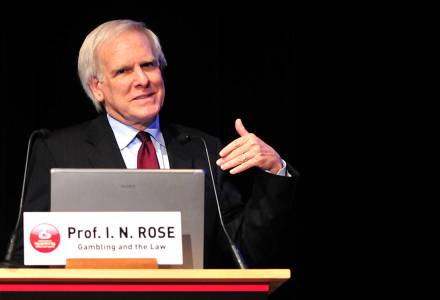 Opponents of legal gambling are notorious within the industry for making up numbers.
Opponents of legal gambling are notorious within the industry for making up numbers.
Robert Goodman, for example, is a discredited “anti” and the founder of the grandly named, though now defunct, “United States Gambling Research Institute.” He is infamous for proclaiming, “The American Insurance Institute estimated that 40 percent of all white collar crime had its roots in gambling.”
The only problem is that there never was an American Insurance Institute. The 40 percent number is pure fiction.
Supporters can also be mistaken. The most enduring myth about casinos and state lotteries is that they can bring in enough revenue to balance budgets.
But it is opponents of legal gaming that seem willing to stretch the truth to make political points.
Take, for example, the 2008 book GAMBLING, FREEDOM AND DEMOCRACY by Dr. Peter Adams. In 2002, while Adams was Chair of the Problem Gambling Foundation of New Zealand, its Executive Director, Ralph Gerdelan, resigned and sought treatment for compulsive gambling, after being accused of embezzling hundreds of thousands of dollars. Questions naturally arose how Gerdelan could have been put into a position of such responsibility, because, as the New Zealand Herald described him, Gerdelan was “a staunch anti-gambling campaigner since he was convicted in 1987 for misappropriating $140,000 and spending it at the TAB [race and sports bets].”
But you wouldn’t know this from Adams’s book. He writes that it was his and his colleagues’ “challenges to the expansion [of legal gambling]” that made them “unpopular.” He states that it was getting the New Zealand government to take a public health approach to gambling that “came at enormous cost to us and our relationships . . . I faced the collapse of the organization as a consequence of pressure from the media, government, and gambling industry figures.”
He wrote the book to warn people about how legal gambling could bring the downfall of civilization.
“This is no ordinary book about gambling. Democracy is too weighty a topic and freedom is too close to the heart of most people for it to be treated lightly.”
Of course, the truth is that, except in very small jurisdictions, like Atlantic City or Nevada, the industry is simply not that large, or influential. But Adams tries to make it bigger than it is.
For example, Adams estimates that the worldwide “consumption” of all forms of legal gambling, is about $300 billion a year. He says this ranks with the estimated $364 billion spent in 2001 on pharmaceuticals.
True. But Adams is comparing all gambling, including “sweepstakes, raffles, poker among friends,” with only pharmaceuticals, which is not even all medicine, let alone all expenditures on health care. The $300 billion is merely a rounding error compared with the trillions of dollars spent each year on all health care.
Adams spends many pages describing the “ecological degradation” of clear-cutting a virgin forest; then equates that with the introduction of gambling.
He argues that legal gambling inevitably corrupts everyone, from politicians, who want cash contributions, to journalists, whose jobs depend on casinos buying newspaper advertising. Even academics and researchers can’t help being tainted.
There really is a need to have a calm, reasoned debate about the impact of legalizing or expanding gambling, based on objective evidence. But too many of the anti’s see gambling as the source of all evil.
And nobody wants to debate someone who sounds like they believe in conspiracy theories.
© 2011, I. Nelson Rose. Prof. Rose is recognized as one of the world’s leading experts on gambling law, and is a consultant and expert witness for governments and industry. His latest books, INTERNET GAMING LAW (1st and 2nd editions), BLACKJACK AND THE LAW and GAMING LAW: CASES AND MATERIALS, are available through his website, www.GAMBLINGANDTHELAW.com.
